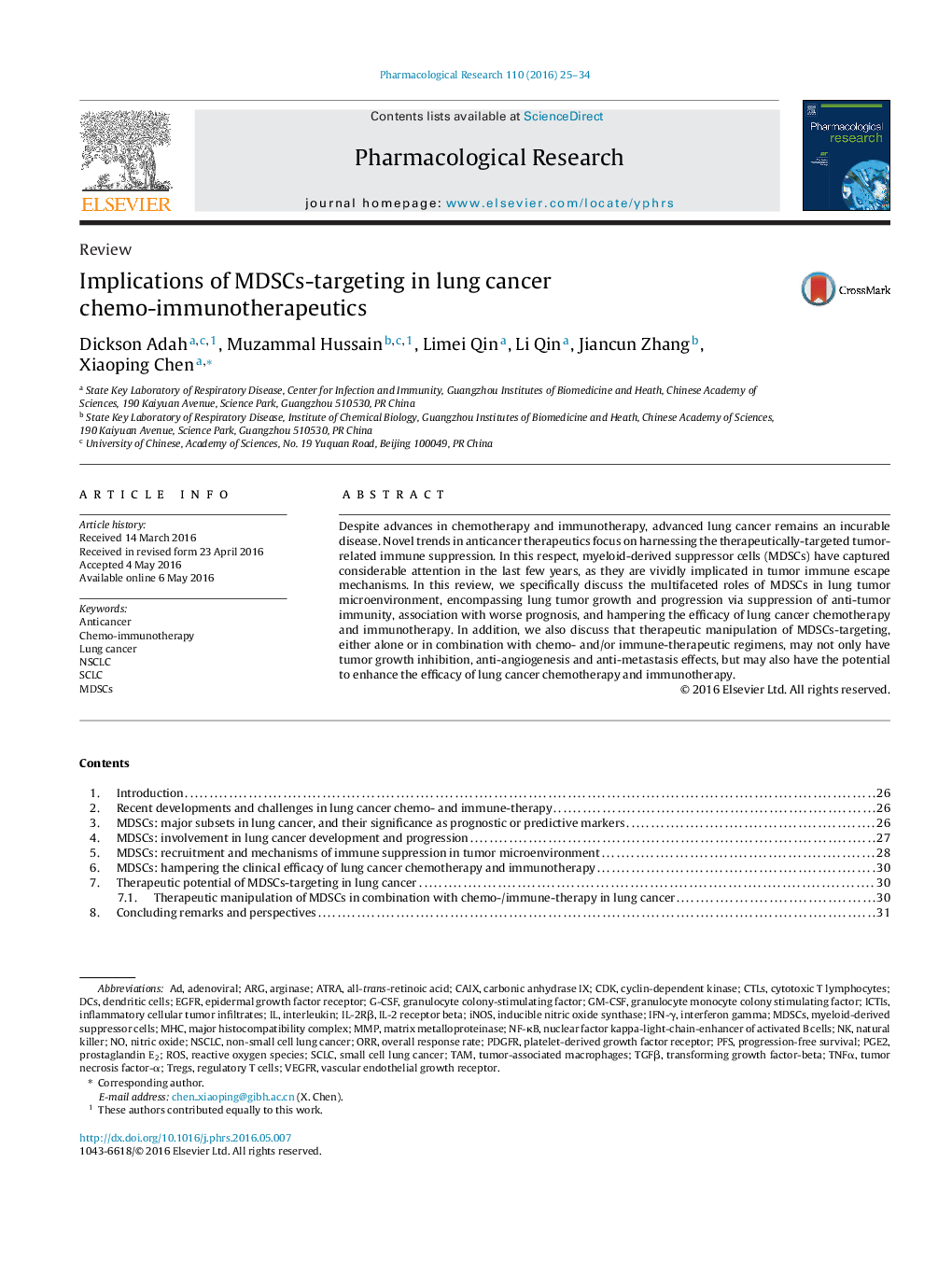| Article ID | Journal | Published Year | Pages | File Type |
|---|---|---|---|---|
| 2561852 | Pharmacological Research | 2016 | 10 Pages |
Despite advances in chemotherapy and immunotherapy, advanced lung cancer remains an incurable disease. Novel trends in anticancer therapeutics focus on harnessing the therapeutically-targeted tumor-related immune suppression. In this respect, myeloid-derived suppressor cells (MDSCs) have captured considerable attention in the last few years, as they are vividly implicated in tumor immune escape mechanisms. In this review, we specifically discuss the multifaceted roles of MDSCs in lung tumor microenvironment, encompassing lung tumor growth and progression via suppression of anti-tumor immunity, association with worse prognosis, and hampering the efficacy of lung cancer chemotherapy and immunotherapy. In addition, we also discuss that therapeutic manipulation of MDSCs-targeting, either alone or in combination with chemo- and/or immune-therapeutic regimens, may not only have tumor growth inhibition, anti-angiogenesis and anti-metastasis effects, but may also have the potential to enhance the efficacy of lung cancer chemotherapy and immunotherapy.
Graphical abstractFigure optionsDownload full-size imageDownload high-quality image (115 K)Download as PowerPoint slide
